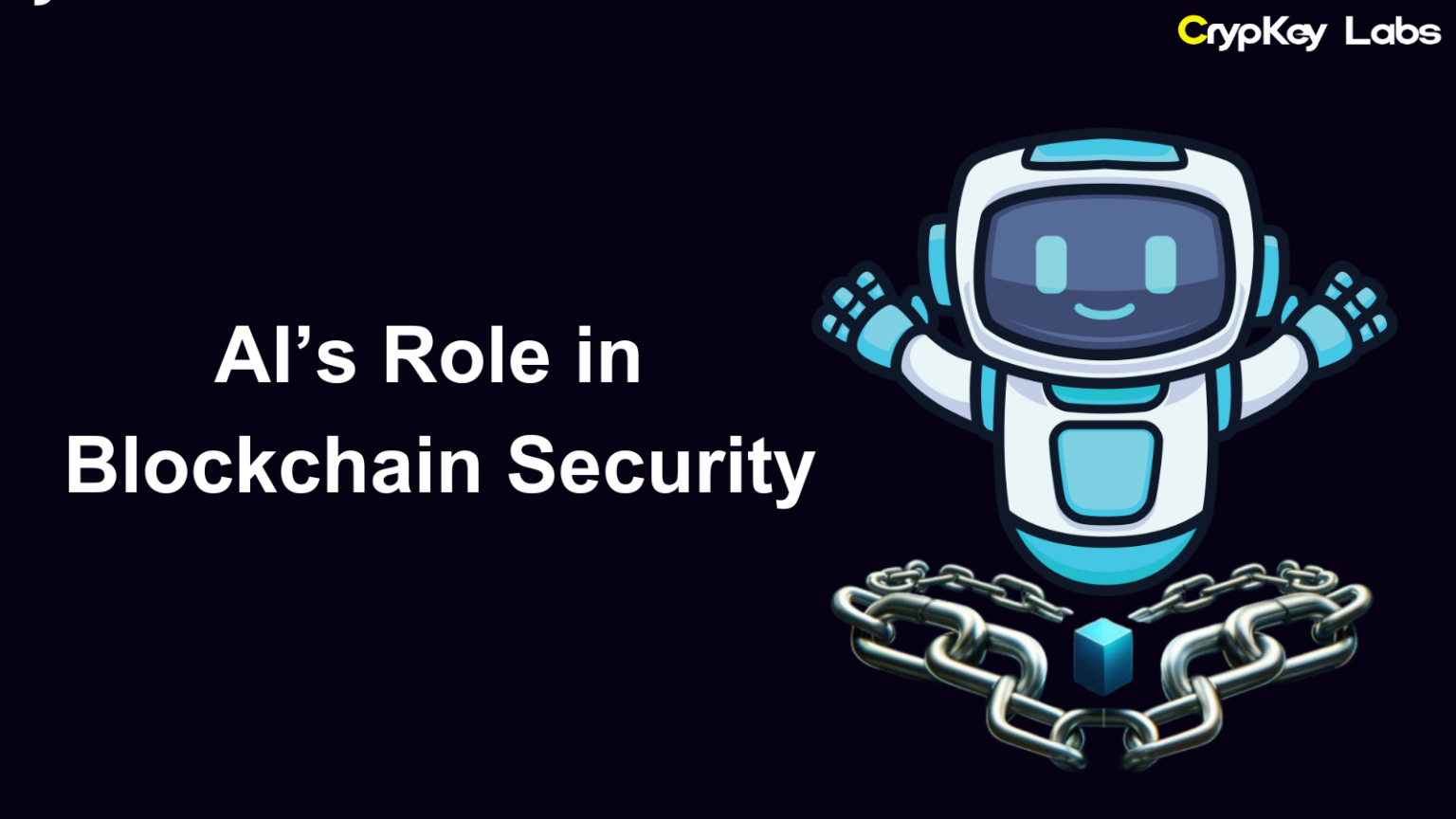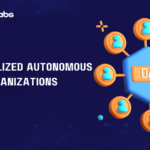Blockchain technology has revolutionized various industries by offering decentralized, transparent, and secure systems. From cryptocurrencies like Bitcoin to supply chain management, its potential is immense. However, even this powerful technology is not without its security vulnerabilities. As blockchain adoption grows, so do the risks associated with it—hacks, fraud, and other malicious activities can still pose serious threats.
This is where artificial intelligence (AI) steps in. AI, known for its ability to analyze large datasets and make real-time decisions, is emerging as a key player in strengthening blockchain security. By automating tasks, identifying threats before they materialize, and continuously learning from new data, AI has the potential to address many of blockchain’s security concerns.
In this blog, we’ll explore the role AI plays in safeguarding blockchain systems, the challenges it faces, and what the future holds for this powerful combination.
Understanding Blockchain Security Challenges
Before diving into how AI enhances blockchain security, it’s important to understand the challenges that make blockchain systems vulnerable. While blockchain offers a unique architecture built on decentralized trust, it is not invincible. Some of the most common security risks include:
Common Blockchain Vulnerabilities
51% Attack: One of the most feared threats to blockchain networks is a 51% attack. If a malicious party gains control of more than half of a blockchain’s computing power, they could manipulate the network, reverse transactions, or double-spend coins.
Smart Contract Bugs: Smart contracts are self-executing agreements written in code. Although they are crucial to blockchain functionality, a poorly coded contract can lead to exploitation by hackers, as seen in incidents like the DAO hack.
Double-Spending: In cryptocurrencies, this occurs when the same digital token is spent more than once. If a blockchain is attacked, it could allow hackers to spend coins multiple times, which undermines the entire system.
Why Traditional Security Approaches Fall Short Blockchain’s decentralized nature is both its strength and its Achilles’ heel. Traditional cybersecurity methods are designed for centralized systems, where a single authority controls security protocols. In blockchain, the absence of a central authority makes it challenging to implement conventional security practices. Furthermore, blockchain operates on distributed ledgers, which require security measures that scale across thousands of nodes. This is where AI steps in, offering solutions tailored to the decentralized architecture of blockchain.
How AI Enhances Blockchain Security:format(jpg)/cloudfront-us-east-1.images.arcpublishing.com/coindesk/ACV6NW764NF6HCTOFM464BQNVY.jpg)
AI and blockchain, when combined, form a strong defense against potential security threats. Here are some key ways AI is enhancing blockchain security:
AI for Fraud Detection AI’s ability to process and analyze huge amounts of data in real time makes it ideal for fraud detection. Blockchain transactions, particularly in cryptocurrency markets, generate an enormous amount of data. AI can sift through this data quickly, identifying patterns of fraudulent activities that would be hard for humans to spot.
For example, AI algorithms can monitor transaction behavior, flagging unusual activities that may indicate hacking attempts or market manipulation. Because AI continuously learns from new data, it can improve its detection accuracy over time.
Smart Contract Auditing with AI One of the most crucial applications of AI in blockchain security is the auditing of smart contracts. Manually auditing smart contracts can be time-consuming and prone to errors. AI tools, however, can rapidly review smart contract code, identifying vulnerabilities before they can be exploited.
These AI-driven audits ensure that the code executes as intended, preventing malicious actors from exploiting bugs. Automated auditing systems can continuously monitor smart contracts, alerting developers to potential flaws that require immediate attention.
AI-Powered Threat Prediction AI’s predictive abilities are a game-changer for blockchain security. By analyzing past attacks and suspicious behaviors, AI can identify emerging threats before they become critical. AI models use machine learning to recognize patterns that humans might overlook, allowing security systems to take preventive action.
These predictive models help blockchain systems adapt to new forms of attacks, making them more resilient over time. AI-powered threat prediction can protect against future vulnerabilities that may not even exist yet.
AI and Blockchain Integration in Real Life
AI is already being integrated into blockchain systems in real-world applications, enhancing security across different sectors. Below are two practical examples:
Case Study 1: Fraud Prevention in Crypto Exchanges Cryptocurrency exchanges are frequent targets of fraud and hacking. AI is now being employed by these exchanges to detect fraudulent transactions. For instance, major exchanges like Binance and Coinbase have implemented AI-powered systems to monitor real-time transactions, flagging any irregularities such as rapid account access from different geographic locations or unusual withdrawal patterns.
These AI tools enable exchanges to act swiftly, freezing accounts and preventing further damage before malicious activities escalate.
Case Study 2: Enhancing Privacy in Blockchain Networks Private blockchain networks, such as those used in healthcare or finance, have started using AI to enhance security and privacy. In these cases, AI is employed to monitor access control, ensuring that only authorized individuals have access to sensitive information. AI also encrypts data more effectively, making sure that information shared across blockchain networks remains confidential and secure.
Challenges of Implementing AI in Blockchain
While AI offers a wealth of benefits for blockchain security, it also presents certain challenges:
Data Privacy Concerns AI thrives on data, but blockchain is designed to prioritize privacy. In decentralized systems, personal information and transaction data are often encrypted or pseudonymized, limiting AI’s access to the raw data it needs for effective analysis. Balancing AI’s need for data with the privacy-focused nature of blockchain remains a key challenge.
Scalability Issues Integrating AI with blockchain requires a significant amount of computing power. Blockchain networks are already resource-intensive, and adding AI models can strain the system further. This creates scalability issues, particularly for public blockchains, which need to process large volumes of transactions.
AI Bias in Decision Making AI models are only as good as the data they are trained on. If the data used to teach these models is biased or incomplete, AI systems may make poor security decisions. For instance, AI could misidentify legitimate activities as fraudulent, leading to unjustified actions such as account freezes or transaction denials.
The Future of AI in Blockchain Security
As both AI and blockchain technologies continue to evolve, we can expect even more sophisticated security solutions in the future. Here are some exciting possibilities:
AI-Driven Autonomous Security Systems Imagine a future where AI autonomously manages all aspects of blockchain security, with minimal human intervention. These systems would be able to continuously learn, adapt, and defend against emerging threats in real-time, providing a level of security that far surpasses anything we have today.
Continuous Learning for Stronger Security AI’s ability to learn from new data makes it a powerful tool for keeping blockchain networks secure. As new threats emerge, AI models can be trained to recognize and neutralize them before they cause harm. This continuous learning process will allow blockchain systems to stay ahead of cybercriminals.
Conclusion
Blockchain technology, despite its inherent security advantages, is still vulnerable to attacks. By incorporating AI into blockchain security, we can significantly reduce the risks associated with this revolutionary technology. AI’s real-time data analysis, predictive abilities, and automation of complex tasks like smart contract auditing make it a vital tool in safeguarding decentralized systems.
As AI and blockchain technologies advance, the potential for fully autonomous, adaptive security systems will become a reality, creating an even safer environment for all blockchain users.







